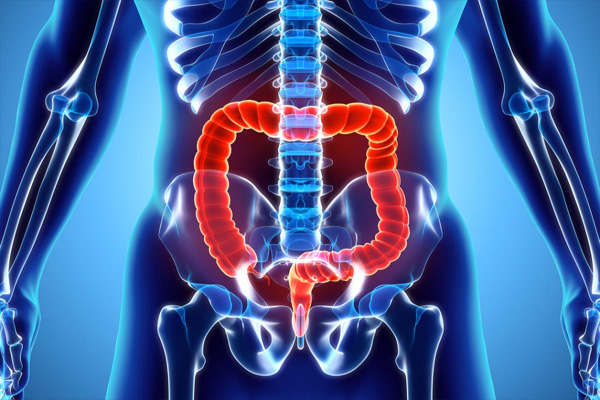What is Ulcerative Colitis?
Ulcerative colitis is a chronic inflammatory condition of your digestive tract. It is one of the two types of inflammatory bowel disease (IBD), the other being Crohn’s disease.

Ulcerative colitis is a chronic inflammatory condition of your digestive tract. It is one of the two types of inflammatory bowel disease (IBD), the other being Crohn’s disease.

Ulcerative colitis is a chronic condition, meaning symptoms persist (in an on-and-off manner) for a longer duration. The most common symptoms of clcerative colitis are:
In persons suffering from ulcerative colitis, the symptoms wax and wane during the course of illness. Sometimes, they are very severe (called a “flare-up.”). At other times, you may be completely symptom-free (“clinical remission”).
Ulcerative colitis is an autoimmune disease, in which your body’s immune system recognizes the lining of your digestive tract as a foreign body and attacks it, causing inflammation. This inflammation results in bleeding, loose stools, and abdominal cramps. The exact cause that triggers our immune system to attack our own cells is mostly unknown.
The common risk factors for ulcerative colitis are:
The common complications seen in persons suffering from ulcerative colitis are:
Your doctor will first take a detailed history and will perform the relevant physical examination. Since multiple other conditions can produce the same symptoms as ulcerative colitis, your doctor will suggest various medical tests to confirm the diagnosis. Tests may include:
Ulcerative colitis is a chronic condition and medicine cannot cure it — but the symptoms are better controlled with regular use of medicines. The goal is to improve the quality of life and place the disease in remission. Your doctor will prescribe medications that are best for controlling the disease. Multiple classes of medications are available, such as:
Almost all of these medicines work by reducing inflammation and the body’s immune response. Every person has a different response to there medicines. Your doctor will prescribe medicine depending upon your general health and symptom severity. Your doctor may also sometimes prescribe antibiotics during flare ups. You might have to try a few different medicines before you find the one that works best for you.
Surgery is not the first-line treatment for the patients with ulcerative colitis. Surgery is only helpful if medicines are not effective enough to control your symptoms or if the medicines are causing a lot of side effects. Surgery can help you to feel better and control symptoms. In ulcerative colitis, surgery is performed if there is:
Theoretically, removal of the entire colon, including the rectum, “cures” ulcerative colitis but it immensely affects quality of life and is only done when other options have failed.
Although there is no clear evidence that foods actually cause inflammatory bowel disease, certain foods may aggravate your symptoms of ulcerative colitis. Your doctor may recommend a special diet given via a feeding tube (enteral nutrition) or nutrients injected into a vein (parenteral nutrition) to treat the symptoms of your ulcerative colitis. This not only improves your overall nutrition but also allows your bowel to rest. Bowel rest can reduce inflammation in the short term. Your doctor may also recommend: